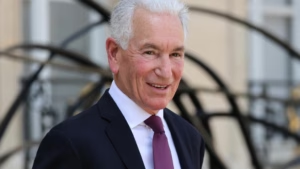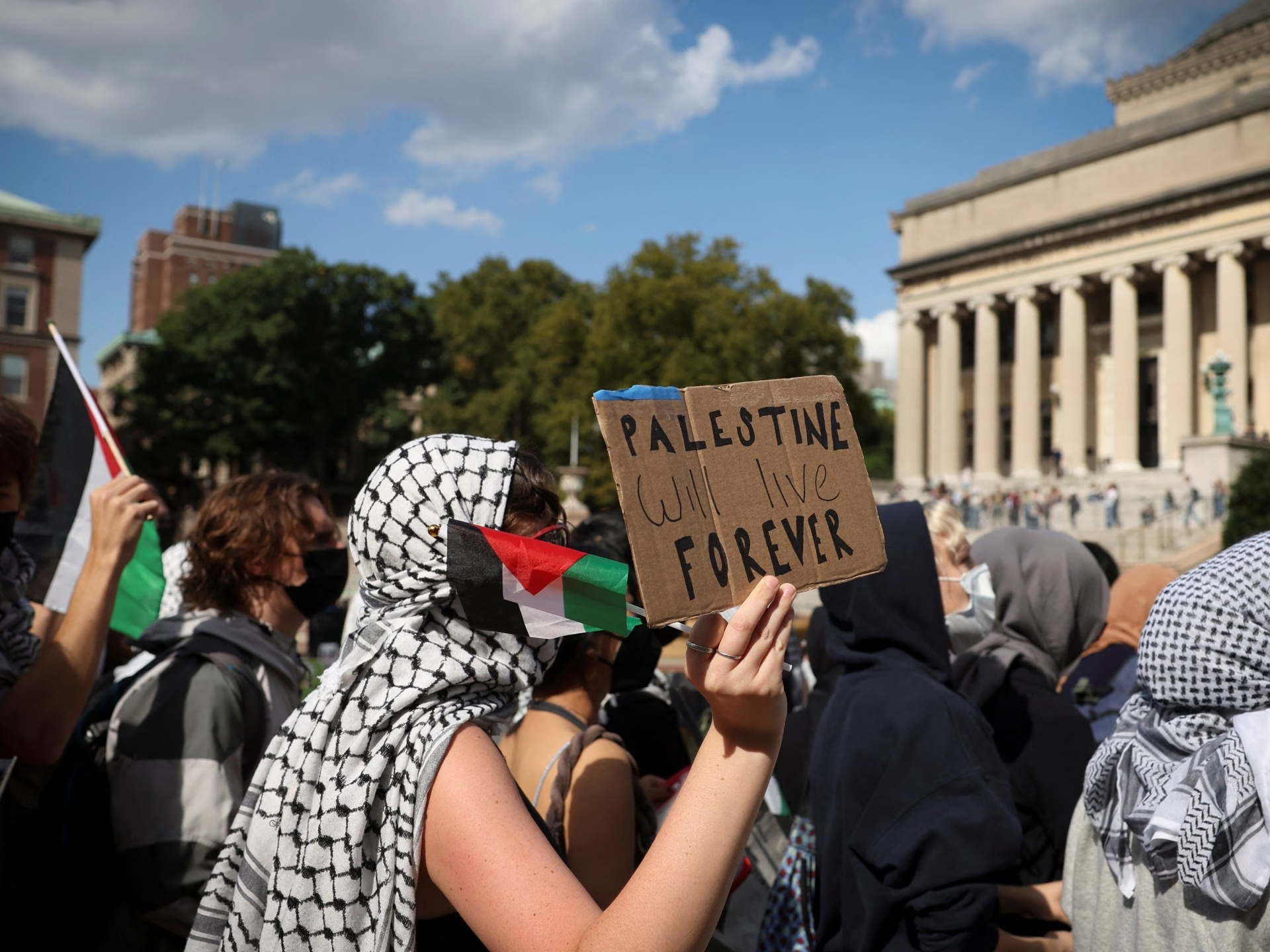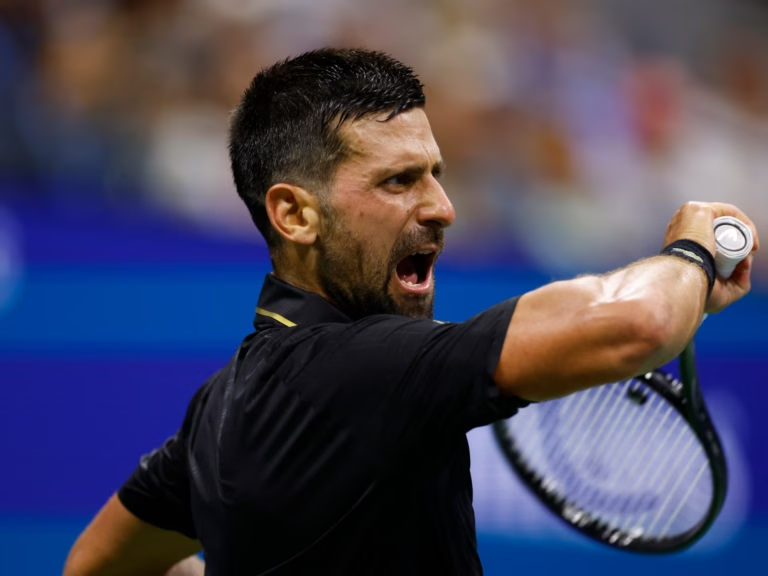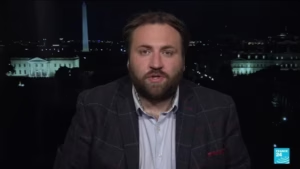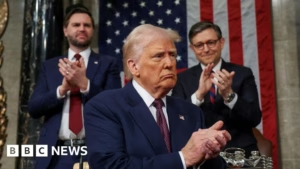Since taking office on January 20, he has taken measures to follow through on these threats, including using executive orders. On Monday, he launched a new attack, threatening to stop federal funding for schools, colleges, and universities if they permit “illegal protests”.
Trump used his Truth Social platform to issue his latest threat, which includes a pledge to imprison “agitators”.
“Agitators will be imprisoned/or permanently removed to their country of origin. American students will be permanently expelled or, depending on the offense, arrested,” Trump stated.
But who is he aiming to target, what actions has Trump taken so far, can he force universities to act against student protesters, and how might higher education institutions react?
Who are the intended targets?
US Ambassador to the UN Elise Stefanik shared Trump’s remarks on social media, stating “antisemitism and anti-Israel hate will not be tolerated on American campuses”, confirming that pro-Palestinian protesters and anti-Israel speech are the targets of the president’s threat.
Under President @realDonaldTrump, colleges and universities will be held accountable. Antisemitism and anti-Israel hate will not be tolerated on American campuses. Promises made, promises kept. @POTUS @realDonaldTrump @WhiteHouse pic.twitter.com/h9nq1gVJRO
— Elise Stefanik (@EliseStefanik) March 4, 2025
Following his election, Trump signed several executive orders in January targeting alleged anti-Semitism on campuses.
In one directive, he pledged to deport international university students and staff involved in pro-Palestinian protests, targeting demonstrators.
He also established a task force through the Attorney General’s office to combat alleged anti-Semitic speech, investigating universities that don’t sufficiently address such speech.
The orders and threats follow widespread pro-Palestine, student-led protests across the country last spring, as Israel’s military actions continued in Gaza. Students demanded an end to Israel’s military strikes, an end to US support for Israel, and for their universities to divest from companies linked to Israel.
Columbia University was seen as the center of these protests, resulting in mass arrests, student suspensions, and eventually the resignation of the university’s president, Minouche Shafik.
Protests also spread to other universities such as Harvard, Yale, and the University of California.
Can Trump legally compel universities to halt protests?
“It’s complicated,” said Jenin Younis, a civil liberties and free speech lawyer.
“It’s challenging to say if the tweet alone is against the law, as it lacks the ability to be enforced,” stated Younis of Trump’s recent post threatening funding. “So, it depends how the administration enforces this threat, and they have not yet provided specifics.
Radhika Sainath, a senior legal expert at Palestine Legal, a US-based organization, noted the executive orders can’t be used as a rulebook for universities.
“This executive directive sets up a framework to encourage, but not require, schools to monitor and report their non-citizen students and faculty,” Sainath said. “As far as we know, these will be non-binding guidelines without enforcement power or pressure.
Despite this, Trump’s directives are deeply troubling, as they are clearly aimed at suppressing First Amendment-protected speech.
“The strength of these orders lies in their chilling effect,” Younes mentioned, adding they are clearly designed to silence protected speech.
In fear of consequences, universities may voluntarily restrict speech that they believe might result in funding cuts, thus pressuring students and professors to remain silent.
Universities received $60 billion in funding for research and development in 2023, making up 55 percent of their total budget for science and engineering research.
According to Sainath, this marks “the most significant escalation in McCarthyite tactics from the Executive Branch regarding Palestine since October 7, 2023”.
Michael Schaeffer Omer-Man, the director of research for Israel-Palestine at the nonprofit DAWN, says Trump’s tactics represent “a twisted new form of transnational repression”.
“Limiting free speech and expression by threatening to withdraw state funds, or more accurately by creating a chilling effect, is characteristic of autocratic takeovers,” Omer-Man stated, adding he views these actions as “as effective as outright banning unpopular political views”.
Were universities targeted under Biden’s administration?
Yes, universities witnessing pro-Palestine protests were also targeted under the previous Biden administration, who expressed disapproval of the student encampments.
Universities tried, and mostly failed, to quell these demonstrations, which often involved police intervention and resulted in several student and faculty arrests across the country.
At Columbia University, several deans and the university president, Minouche Shafik, resigned following allegations of failing to protect students and staff from rising anti-Semitism.
Despite being questioned by a congressional committee, Shafik allowed police onto campus to arrest the students and faced calls for her resignation.
Trump now seems to be intensifying efforts to target universities and students.
“His actions aim to undermine students’ and staff’s constitutional rights to speak out and organize,” stated Sainath.
Will the threats work?
Not on protesters, according to the experts.
Omer-Man said the strong support for Palestine on US campuses was “powerful precisely because students and faculty have already faced consequences for speaking out against Israeli apartheid and stood up anyway”.
Students have continued to speak up for Palestine despite Trump’s executive orders.
Universities are under pressure, though. Recently, Columbia University had to reaffirm its commitment to “combating anti-Semitism” following threats from Trump’s administration to withdraw more than $50 million in contracts between the university and the federal government.
A statement from federal agencies cited Columbia’s “persistent inaction” in the face of reported harassment of Jewish students.
However, Omer-Man said young Americans “have never been dissuaded by violent attempts to suppress the nation’s conscience”.
Sainath agreed.
“Students – and faculty – continue to speak out, often risking their personal safety, as people of conscience have done throughout history,” she said. “Their voices are crucial in ending US support for Israel’s ongoing atrocities in Gaza, which is why Israel’s supporters are striving to silence this growing movement.”
How might universities respond?
Younes mentioned that it may be difficult for universities to legally challenge these executive orders.
It might be “easier to contest them in a specific case”, once the government retains funds or implements policies according to the executive order, she stated.
Sainath emphasized the importance for universities “to remain on the right side of history – they do not have to cooperate and indeed should not cooperate” with these orders.
Universities should resist efforts to partake in “racist, anti-Palestinian censorship campaigns and safeguard the right to academic freedom and free speech,” added Sainath.


